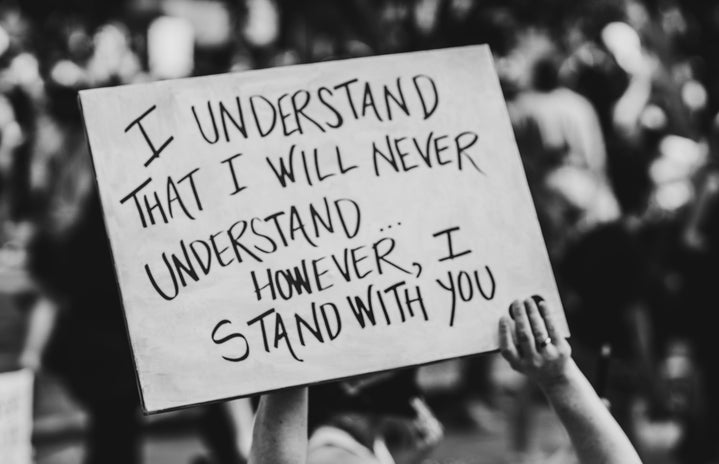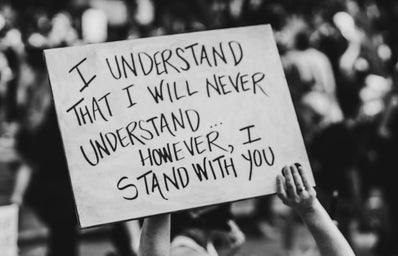2020 was a pivotal year in many non-Black Americans beginning to recognize the racism that plagues America. As a young white woman who went to a predominantly white high school, 2020 quickly confronted me with the fact that I lacked education on Black American history. I decided to spend the past year educating myself on diversity topics that were foreign to me––topics that were never discussed in my family or in school. Topics like redlining, the history of the American policing system, and the Tuskegee Study are, in my opinion, a few of the many topics that are critical to truly reaching a deeper understanding of American race dynamics in 2021. The goal of this article is to pass on some information that I have learned over the past year that has deepened my own understanding of American racial dynamics in 2021. At the end of this article will be a list of extra resources to check out if you are interested in doing further research on these topics.
Redlining
The term redlining originates from the red markings on maps that would signal the areas where financial services were restricted because of credit risk on the basis of the neighborhood’s racial makeup. Why is redlining relevant in 2021 if it was banned in 1968? The redlining created such a great economic inequality that the current values of those neighborhoods are still low due to their populations of minority and lower-income residents. It has also led to a disproportionate amount of wealth being passed down generationally between white Americans and Black Americans. Consequently, these areas still do not receive the same resources that more “desirable” neighborhoods receive from the government. Redlining is a form of systemic racism and its legacy has led to many towns and cities remaining fairly segregated today.
A Brief History of the American Policing System
Policing originated during the era of slavery where slave patrols were used to capture escaped slaves and return them to their owners. When the 13th Amendment abolished slavery and the Jim Crow Era began, these slave patrols shifted into lynch mobs who publicly murdered Black Americans. Modern policing occurs through both official police officers and the citizens who call the police. A white woman calling the police on a Black child for selling lemonade in 2019 is a similar policing style as a white woman falsely claiming that a Black man whistled at her during the Jim Crow era.
The Tuskegee Study
In 1932, the United States Public Health Service (USPHS) conducted an experiment on around 600 Black men from Alabama to observe the consequences of untreated syphilis in Black populations. The experiment deceived the participants, who were told they were receiving free treatment for blood-related illnesses such as anemia, syphilis, fatigue, and other conditions. The patients were not told that they had a deadly disease. In reality, the researchers were not treating these illnesses and were instead providing them with ineffective medicines to trick the patients into believing they were receiving treatment. The researchers assured that the patients were not receiving additional medical care by sending doctors a list of the patients in their research study, requesting that they deny those patients care. Information about the unethical study was leaked to the press in 1972, causing the Tuskegee Study to end with a class action lawsuit launched against the USPHS. At this point, 128 patients in the study died of syphilis-related causes and 40 of their wives had been infected with syphilis as well. The Tuskegee Study’s lasting impact has been a wide distrust of medical research within the Black community. This is especially relevant in 2021 with the development and administration of COVID-19 vaccinations. Throughout Twitter, there is a lot of discussion that Black Americans are not trusting the COVID-19 vaccine due to the United States’ history of experimental testing on Black subjects. Learning about experiments like the Tuskegee Study is important for understanding the distrust of medical research among the Black community and the hesitancy for this community to get vaccinated for COVID-19.
While this article briefly summarizes redlining, the history of policing, and the Tuskegee Study, my position as a white woman who is still learning about these topics means that there is much more information on these topics to be learned outside of this article.
Linked below are some extra resources for these topics including interactive maps, short videos, and articles that discuss the history or the consequences of the topic.
Extra Resources
Redlining
Interactive Map to Look at Redlined Areas in America
Consequences of Past Housing Discrimination
A Brief History of the American Policing System
NPR Video on History of Policing in America
Ida B. Wells Speech on Lynch Mobs
“How I Became a Police Abolitionist” Article
Report on Racial Profiling and the LAPD
The Tuskegee Study
WebMD Article on Black Vaccine Hesitancy
Video on Tuskegee Syphilis Experiment
C-Span Video with Fred Gray and Apology from President Clinton
Recent SNL Skit Referencing Tuskegee Study
Sources:
https://www.mcgill.ca/oss/article/history/40-years-human-experimentation-america-tuskegee-study



